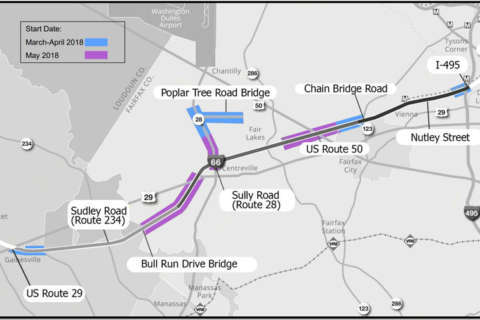WASHINGTON — Metro is putting 164 buses back on the road Monday, even though the agency and the manufacturer haven’t found a clear reason why two of them shut off while they were moving last month.
“[T]he safety inspections involving 164 Metrobuses manufactured by New Flyer is [sic] nearing its conclusion and the buses will soon resume passenger service,” Chief Operating Officer Joe Leader said in a message to riders.
The return of the buses — about 10 percent of Metro’s fleet — will mean a return to a regular schedule for riders for the first time since the buses were pulled from service in late March after a second bus suddenly shut down while carrying riders. Two people suffered minor injuries.
In the weeks since, investigators from New Flyer have failed to replicate the problems, and monitoring devices on several of the buses running in traffic but without riders on board over the last 10 days have not detected any issues.
The company did recommend a series of changes to reduce the risk of a shutdown, Leader said, but the only one detailed in the message was to raise the “low idle” engine speed from 700 rpm to 800 rpm in the hopes of preventing engine stalls.
The recommendation was implemented last week.
“New Flyer has certified that they are confident that the changes to engine parameters will prevent further unexpected engine stalling, and that the buses are safe for passenger service,” Leader said.
A person on one of the buses at the time told WTOP that everything — not just the engine — seemed to shut off with no apparent warning while the bus was in motion.
Other tweaks to the bus systems, beyond the change to the engine idle speed, could help address that problem.
“The other recommendations are all low priority, per New Flyer, but as an example, separating the door power supply from the ramp/kneel switch power supply and other similar reconfigurations,” Metro spokesman Richard Jordan said in an email.
Over the more than three weeks the compressed natural gas buses have been out of service, riders have faced delays on a number of routes mainly in Northern Virginia, D.C. and Prince George’s County. In certain cases, Metro’s smaller fleet of older reserve buses was able to cover some trips, but more than 1 percent of scheduled daily bus trips have not run.
The fleet will not return to service until Monday because it takes time to redistribute the 164 buses from the main inspection facility to the garages they operate out of, Jordan said.







